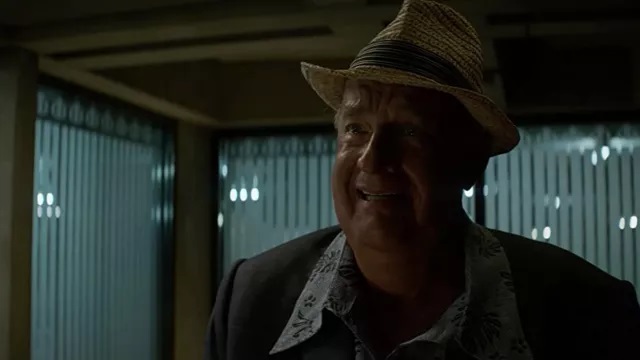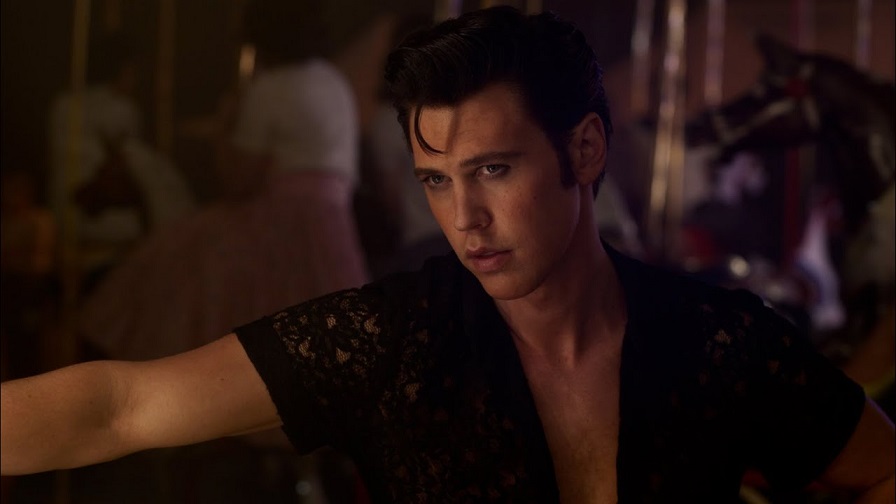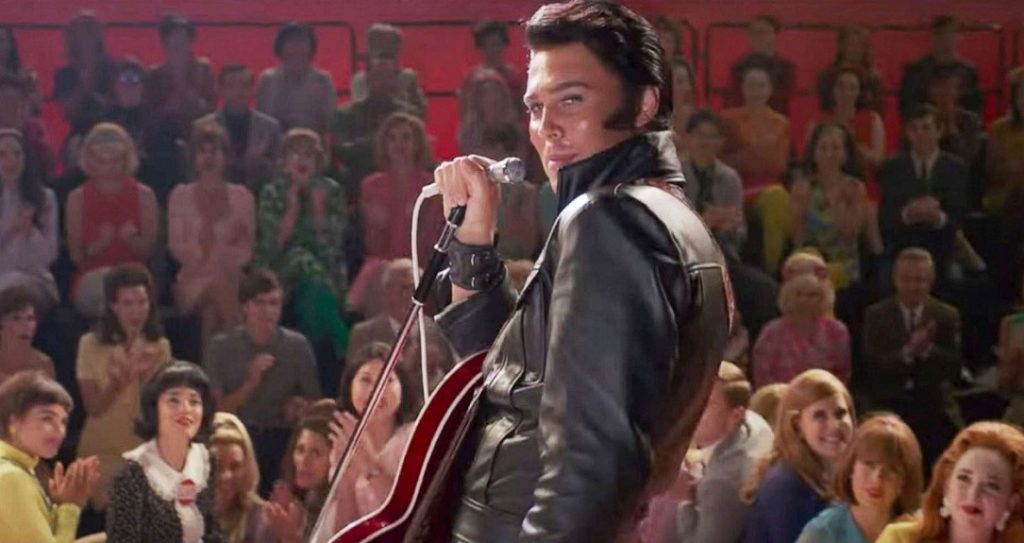
Running Time: 159 minutes
This film from Warner Bros. opens at cinemas on Friday, June 24th.
Elvis Presley stands as one of the most iconic musical performers ever, ruling the charts in the late 1950s and selling so many records that he remains one of the highest selling solo artists in history. His high-energy shows and hip-swinging on-stage antics titillated some and enraged others, adding to his fame. Talented Moulin Rouge director Baz Luhrmann is another figure known for his flashy style and ability to deliver grand spectacle. While this director would seem like an appropriate figure to tell this story, it’s the wrong approach for the new biopic Elvis and doesn’t deliver the goods. It is eye-popping and slick, but hollow to the core and lacking any authentic insight into the figure or his unusual life.

The story is narrated from the point-of-view of the star’s antagonist, eccentric manager Colonel Tom Parker (Tom Hanks). While operating a traveling circus in the southern US, he witnesses an early performance by youngster Elvis Presley (Austin Butler). After seeing the reaction of female fans, Parker becomes determined to sign the artist, manage his career and cash in. It’s a meteoric rise to the top for the pair, but as the years pass troubles arise in their relationship. Parker has a few secrets and, as Elvis moves from project to project, the artist starts feeling manipulated by his controlling manager.
This is one of the most hyperactive features in recent memory. The film veers from one story in Elvis’ life to another in mere moments, buffered by glittering jewels, lights and spinning cameras with overly lengthy transitions between scenes. Early on, the movie feels like a montage, with Parker’s narration explaining what is occurring, followed by a line or two before moving to another event. Naturally, it’s hard to dig deeper into the individuals involved using this approach. Butler does a nice job at embodying Elvis, but interactions with Parker are presented in such an over-the-top manner that some of it is snicker-worthy. Hanks is plastered under make-up and padding, and there are literally shots of the supervisor peering from behind show curtains with a menacing grin.

Everything about the movie is aggrandized, adding falseness to the proceedings. Those familiar with Elvis Presley will know that the artist had a serious prescription drug problem and got into plenty of personal scandals, as well as some odd exchanges over the course of his lifetime (including a plea to President Richard Nixon to let him join the FBI as a Drug Enforcement Agent shortly after beginning his Las Vegas residency). These bizarre acts are largely ignored in the film.

What could have been an interesting expose into an artist trying to maintain a famous public persona while struggling with addiction and other personal issues is largely ignored. Instead, Elvis is exclusively portrayed as a sweet-natured kid who really, really loved his mamma. By the end, he transforms into a man whose suffering comes exclusively from his sinister manager. Parker was certainly a crook who did exploit his star. But again, it’s all delivered in an exaggerated manner that lacks authenticity.
There are a few things in the film that do work. The pacing does slow down during the lead’s preparations for what would later become known as the “Comeback Special” and interesting drama is generated from how this show was put together. When Parker does talk business and his own methods for hyping the musician, some of his pitches (like selling both Elvis buttons for fans and haters in order to monopolize the market) are shrewd and clever. And some of the onstage performances are actually energized by the quick cutting. When Elvis performs late in the film, footage and sound from the artists who inspired him, as well as earlier performances from his youth are combined to interesting effect.

However, for the most part, this biopic feels phony. A major artist with a huge public personality doesn’t benefit from an even larger-than-life onscreen portrayal. The rapid editing becomes tiresome and the screenplay doesn’t present an intimate enough picture of the artist or how he truly felt about the trials and tribulations of stardom. Elvis looks great, but is otherwise a disappointing cacophony.


